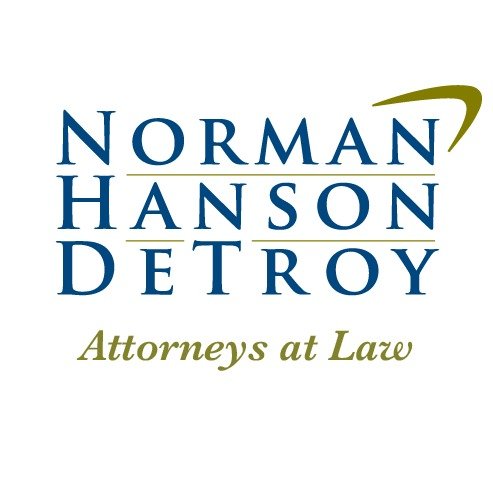Best Trusts Lawyers in Lewiston
Share your needs with us, get contacted by law firms.
Free. Takes 2 min.
List of the best lawyers in Lewiston, United States
About Trusts Law in Lewiston, United States
Trusts law in Lewiston, United States pertains to the legal arrangements made to manage and distribute assets. A trust is a legal framework where one person, called the trustee, holds and administers assets for the benefit of another person or group, referred to as beneficiaries. Trusts are governed by both federal and state laws, so it's essential to understand the specific regulations that apply in Lewiston.
Why You May Need a Lawyer
There are various situations where seeking legal help in trusts is advisable. Some common instances include:
- Creating a trust: Establishing a trust involves complex legal documentation and understanding the different trust options available. A lawyer can guide you through the process and ensure the trust is structured to meet your specific needs.
- Modifying or revoking a trust: If you wish to amend the terms of an existing trust or revoke it entirely, a lawyer can help ensure that all legal requirements are met.
- Disputes or litigation: In case of conflicts or disagreements between trustees or beneficiaries, a lawyer can provide legal representation and assist in reaching a resolution.
- Trust administration: When acting as a trustee, it's crucial to understand your fiduciary responsibilities, tax obligations, and legal obligations. Consulting a lawyer can ensure compliance and avoid potential issues.
Local Laws Overview
In Lewiston, the laws related to trusts are primarily based on the Idaho Uniform Trust Code. Some key aspects of local trust laws include:
- Creation and validity of trusts.
- Types of trusts allowed.
- Duties and powers of trustees.
- Rights and interests of beneficiaries.
- Trust administration and termination.
- Taxation and reporting requirements.
Frequently Asked Questions
1. What types of trusts can I create in Lewiston?
In Lewiston, you can create various types of trusts, including revocable trusts, irrevocable trusts, charitable trusts, living trusts, and special needs trusts. Each has its own specific purpose and benefits.
2. How do I choose the right trustee for my trust?
When selecting a trustee, it's important to consider their ability to handle financial matters, trustworthiness, and willingness to fulfill their fiduciary duties. It's common to appoint a family member, friend, professional trustee, or a trust company.
3. What happens if a trustee breaches their duties?
If a trustee fails to fulfill their obligations, beneficiaries may have legal grounds to take action. The specific consequences will depend on the nature and extent of the breach, but potential outcomes may include removal of the trustee, financial restitution, or legal recourse.
4. Are trusts subject to taxation in Lewiston?
Trust taxation can be complex and depends on various factors, such as the type of trust, its purpose, and the income it generates. Consulting an attorney or tax professional is recommended to fully understand the tax implications of your specific trust.
5. Can a trust be contested?
Yes, trusts can be contested under certain circumstances, such as allegations of undue influence, lack of capacity when creating the trust, fraud, or if there are ambiguities in the trust document. Contesting a trust generally requires filing a lawsuit in probate court.
Additional Resources
If you need further information or assistance with trusts in Lewiston, the following resources may be helpful:
- Lewiston City Attorney's Office - provides general information on local laws and regulations related to trusts.
- Lewiston Bar Association - offers lawyer referral services and legal resources for individuals seeking assistance in trust matters.
- Idaho State Bar - provides access to legal resources, including a directory of attorneys specializing in trusts law.
- Idaho Supreme Court Self-Help Center - offers informational resources and forms related to trusts and probate proceedings.
Next Steps
If you require legal assistance in trusts, follow these steps:
- Evaluate your specific needs and determine the type of trust assistance required.
- Research and select a qualified attorney with expertise in trusts law.
- Contact the attorney to schedule an initial consultation.
- Prepare any relevant documents and information to discuss during the consultation.
- During the consultation, explain your situation, ask questions, and address any concerns you have.
- Based on the consultation, decide whether to proceed with legal representation.
- If you choose to proceed, follow the attorney's guidance and provide any requested documentation or information promptly.
- Maintain open communication with your attorney throughout the process.
- Be proactive in providing necessary updates and information as requested.
Lawzana helps you find the best lawyers and law firms in Lewiston through a curated and pre-screened list of qualified legal professionals. Our platform offers rankings and detailed profiles of attorneys and law firms, allowing you to compare based on practice areas, including Trusts, experience, and client feedback.
Each profile includes a description of the firm's areas of practice, client reviews, team members and partners, year of establishment, spoken languages, office locations, contact information, social media presence, and any published articles or resources. Most firms on our platform speak English and are experienced in both local and international legal matters.
Get a quote from top-rated law firms in Lewiston, United States — quickly, securely, and without unnecessary hassle.
Disclaimer:
The information provided on this page is for general informational purposes only and does not constitute legal advice. While we strive to ensure the accuracy and relevance of the content, legal information may change over time, and interpretations of the law can vary. You should always consult with a qualified legal professional for advice specific to your situation.
We disclaim all liability for actions taken or not taken based on the content of this page. If you believe any information is incorrect or outdated, please contact us, and we will review and update it where appropriate.








